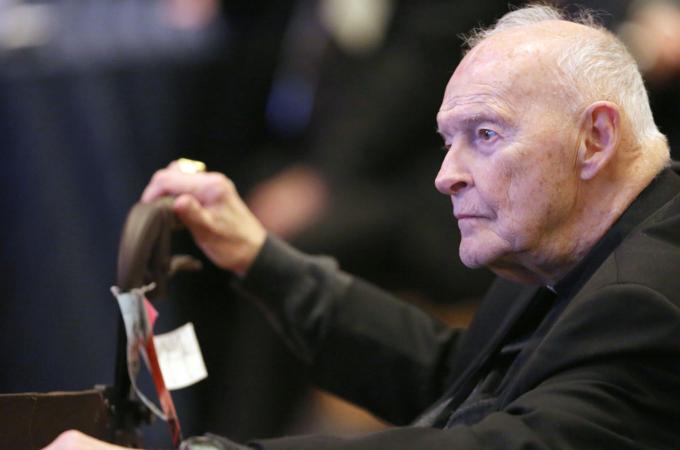Mass and clergy sex abuse/Sacraments and defrocked religious
Q. I have been a lifelong Catholic, never missing Mass on weekends or holy days. But for the last four or five weeks, I have not attended Mass, and it was a conscious decision. I am utterly disgusted at what the Catholic Church has become. I still believe that the Catholic faith is the correct one, but in order to stay a Catholic I have to separate internally the "faith" from the "church."
You probably know what I am talking about: decades of rampant child abuse by priests, bishops, cardinals. And instead of kicking out the rapists and abusers, they have instead been protected and even promoted within the church. (And we have all read about financial improprieties within the Vatican bank.)
So my question is this: If the church is hopelessly morally corrupt, am I really committing a sin by not attending Mass? (central Missouri)
A. It pains me to read your question, and I pray every day for those Catholics like yourself who are experiencing doubts and deep distress because of the criminal and disgraceful behavior of some clerics. It does little good to remind readers that the number who have been credibly accused of sexual abuse of minors represents a small minority of clerics -- perhaps 3 or 4 percent. Even one case, of course, is too many -- especially when you consider the lifelong turmoil it brings into a child's life.
I try to encourage people to separate, if they can, not so much -- as you say -- the "faith" and the "church;" the distinction, in my mind, is between the church as founded by Jesus and the human and fallible individuals who make up that church, including some in leadership roles.
To answer your question, yes -- you still do have the moral obligation to "keep holy the Lord's day" by sharing in the Mass. I can readily understand why you have begun to drift away, but that's not really fair to yourself.
Why punish yourself because of the infidelity of some clerics? Why deprive yourself of the benefit of the Eucharist, of the comfort that is offered from the closeness to Christ, of the strength for daily living that comes from being nourished at the table of Jesus?
Q. I think that faithful Catholics would like to know about the validity of the sacraments received from disgraced or defrocked priests and bishops. Were sins forgiven in the sacrament of penance? Did the act of consecration take place for the bread and wine to become the body and blood of Christ? (Saratoga Springs, New York)
A. I friend of mine who was married years ago by a Catholic cleric later removed from ministry likes to tell me -- jokingly -- that his wedding "did not count" and that he is free now to marry someone else! That, of course, is not true.
The question you raise was answered in the church nearly 1,700 years ago in what was known as the Donatist controversy and ratified later in the teaching of St. Augustine. Since it is really Christ who is acting in the sacraments, the personal unworthiness of the minister would not prevent Jesus from acting.
Later, medieval church theologians would explain it in more formal terms by saying that the sacraments operate "ex opere operato" ("from the work having been done") and not "ex opere operantis" ("from the work of the worker").
As the Catechism of the Catholic Church states it today, "From the moment that a sacrament is celebrated in accordance with the intention of the church, the power of Christ and his Spirit acts in and through it, independently of the personal holiness of the minister" (No. 1128).
- - -
Questions may be sent to Father Kenneth Doyle at askfatherdoyle@gmail.com and 30 Columbia Circle Dr., Albany, New York 12203.
- Father Kenneth Doyle is a columnist for Catholic News Service



















